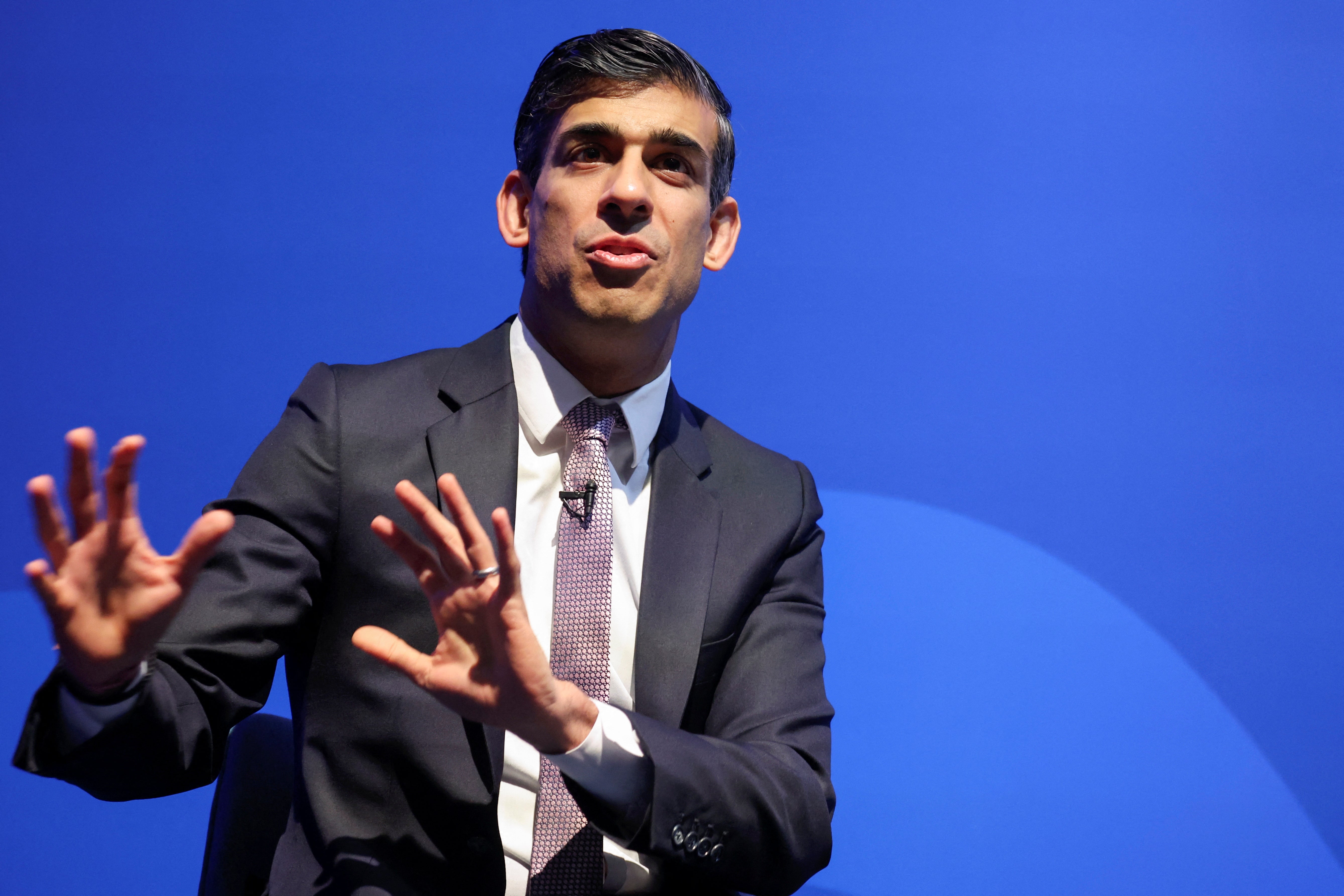Labour’s fate might not lie in its own hands – but Rishi Sunak’s
Labour has joined many Tory MPs in urging Sunak to postpone next month’s rise in national insurance contributions in his spring statement, writes Andrew Grice


The traditional tax and spend battle between the Conservatives and Labour has turned on its head. Since Margaret Thatcher reduced the overall tax burden – no government has done so since – the Tories have been seen as a tax-cutting party and Labour a party of high spending and higher taxes. Yet now the roles are reversed. Labour has joined many Tory MPs in urging Rishi Sunak to postpone next month’s rise in national insurance contributions in his spring statement on Wednesday.
The Institute for Fiscal Studies reported this week that Sunak has already raised taxes more than Gordon Brown did in 10 years as chancellor.
With the tax burden at its highest for 70 years, Labour claims the Tories have lost the right to call themselves a tax-cutting party, and that Sunak is banking higher than expected tax receipts now so he can cynically cut taxes before the next general election. Even if he does that, it will be very difficult to ensure his legacy is as a chancellor who reduced the overall tax burden like his predecessor and hero Nigel Lawson in the Thatcher era.
Speaking at the Tories’ spring forum in Blackpool today, Sunak said his tax rises were “done” and that “my priority going forward is to cut taxes”. He pointed out that Thatcher raised taxes to reduce the deficit before cutting them later.
However, the pressure on Sunak to carry on spending is growing. War in Ukraine has compounded the cost-of-living crisis and complicated his calculations ahead of next Wednesday. He didn’t want his statement to be seen as a “mini-Budget” but it will be now.
Privately, some senior Tories expect Sunak to stick with the national insurance increase but to reduce petrol duty so the headlines are about a tax cut rather than a rise. While delaying further measures to cushion soaring energy bills until the autumn, Sunak might help low-income families by tweaking universal credit.
In his Budget last October, he reduced the amount of benefit a worker loses for every extra pound they earn from 63p to 55p in the pound. With an eye on history, Sunak hailed that as “a £2bn tax cut” even though it was really a benefit increase. It didn’t help the unemployed; he should do next week because they have energy bills too.
The Ukraine crisis is bound to increase tensions between Sunak and Boris Johnson over fiscal policy. Johnson’s instinct is to borrow more while Sunak wants to rein in borrowing after his £400bn splurge in the pandemic.
Such tensions between Downing Street neighbours go with the territory, according to Howard Davies, the chair of NatWest Group and a former deputy governor of the Bank of England.
He told me: “The current fiscal policy dilemma recalls many earlier debates between No 10 and 11. There is something in the water in No 11 which biases its tenants towards greater prudence than their neighbours want.
“This year’s problem is particularly acute. The war will increase inflation in the short term, squeezing incomes, but will push up public spending, especially on defence, in the longer term. The chancellor has to try to balance both pressures.”
Labour figures have also been reflecting on their party’s fiscal policy history. Exactly 30 years ago, Labour introduced a “shadow budget” during the 1992 election campaign, including tax rises to fund higher pensions and child benefit. It has shaped the politics of tax and spend since; it was widely blamed for Labour’s defeat and then cited by New Labour as the reason not to hike taxes.
Both Tory and Labour governments have aped Thatcher by cutting the highly visible basic rate of income tax, while raising overall taxation through stealth taxes.
But David Ward, who was adviser to the shadow chancellor John Smith in 1992, argues that the “mythology” about his package is “misguided” in a new paper for the Mile End Institute at Queen Mary University, London.
To keep up to speed with all the latest opinions and comment sign up to our free weekly Voices Dispatches newsletter by clicking here
He has some important history lessons for Keir Starmer, including: don’t leave it too late to spell out your plans. “What Labour does during the lifetime of a parliament usually matters far more than the final weeks of an election campaign,” he writes. Another possible lesson is to make the case for higher spending on services such as health and education that benefit everyone rather than issue targeted pledges.
Labour might be in the ascendancy in the tax battle for now and Rachel Reeves, today’s shadow chancellor, has improved its performance on the economy. But the party has difficult questions to answer before the election, not least on tax.
As Ward rightly warns, it is very difficult for an opposition to win economic credibility and they often need governments to lose it. That happened to John Major’s administration only five months after his surprise 1992 election victory, when the UK was evicted from the European exchange rate mechanism on “Black Wednesday”.
Uncomfortably for Labour, its fate might not lie its own hands, but Sunak’s.






Join our commenting forum
Join thought-provoking conversations, follow other Independent readers and see their replies
Comments